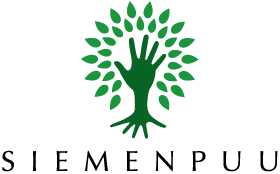The East African country of Kenya has a population of over 50 million people. Kenya is home to various groups of hunter-gatherers including Ogiek, Sengwer, Yiaku, Waata, Awer (Boni), as well as pastoralists like the Turkana, Rendille, Borana, Maasai, Samburu, Ilchamus, Somali, Gabra, Pokot, Endorois. According to the IWGIA, the indigenous peoples of Kenya face discrimination, exclusion and human rights abuses.
Under 8 % of Kenya’s land area is covered by forests and most of the still regenerating forests have survived in the traditional territories of the indigenous hunter-gatherers, even though they make up only about 0,4 % of the population. The ancestral rights and knowledge about sustainable practices of forest peoples have often been ignored in the name of conservation.
Meanwhile, indigenous pastoralists have been severely hit by climate change and droughts. Pastoralist territories are destined for various energy and infrastructure projects, which have often been planned and implemented without taking into account the local communities’ rights and have led to forced relocations.
Kenyan forest dependent peoples have advocated for the national implementation of the UN Convention on Biological Diversity, the recognition of indigenous peoples’ customary land rights in the Community Land Bill, and the adoption of local level laws to recognize forest community by-laws. Advocacy work on the African Court on Human and Peoples Rights was successful regarding the Ogiek quest to return to the Mau Forest, their ancestral home. The court’s judgments favoured the community, against the Kenyan government, in 2017 and again in 2022.
Siemenpuu’s role in Kenya
In Kenya, through its funding scheme on Biocultural Rights, Siemenpuu Foundation is strengthening the realisation of internationally recognised biocultural rights and ecosystem management capabilities of indigenous communities of hunter-gatherers in forests and self-reliant nomadic pastoralists, based on self-regenerating local ecosystems.
Siemenpuu Foundation has supported the Biocultural Community Protocol (BCP) processes of some of these communities. BCP is a tool to safeguard communities’ rights as well as their traditional knowledge and resources, providing clear terms and conditions to regulate the use of community assets as well as sharing benefits that accrue from any development of these assets. By improved management, biodiversity is nurtured for varied livelihoods in order to alleviate poverty and adapt to the increasing impacts of climate change.
Additionally, as in Siemenpuu’s funding schemes in general, the overall goal is to strengthen women´s rights and position in their communities, to promote using participatory community learning approaches in the projects supported, to include networking activities and encourage multi-ethnic approach between communities.
Through strengthened ethnic identity as indigenous people, women, and youth it can be safely assumed, that also their confidence for social and political inclusion and participation will be strengthened. Strengthened rootedness and identity will also broaden rural based future related horizons of indigenous youth, being one supportive factor for their willingness to get educated accordingly.
